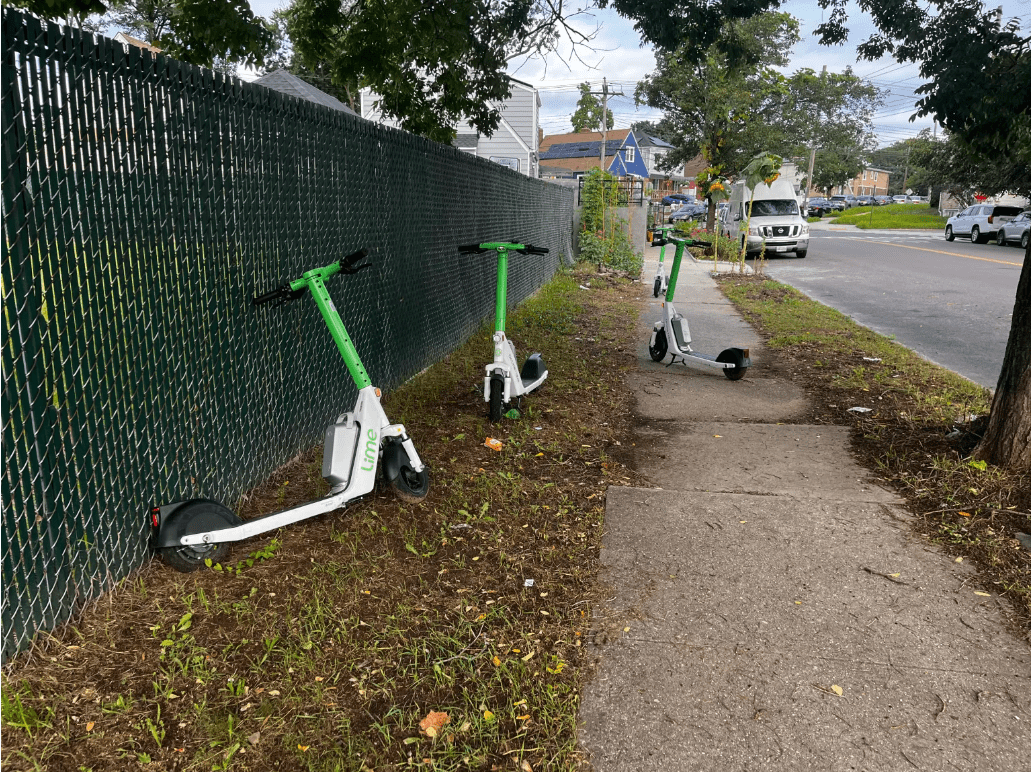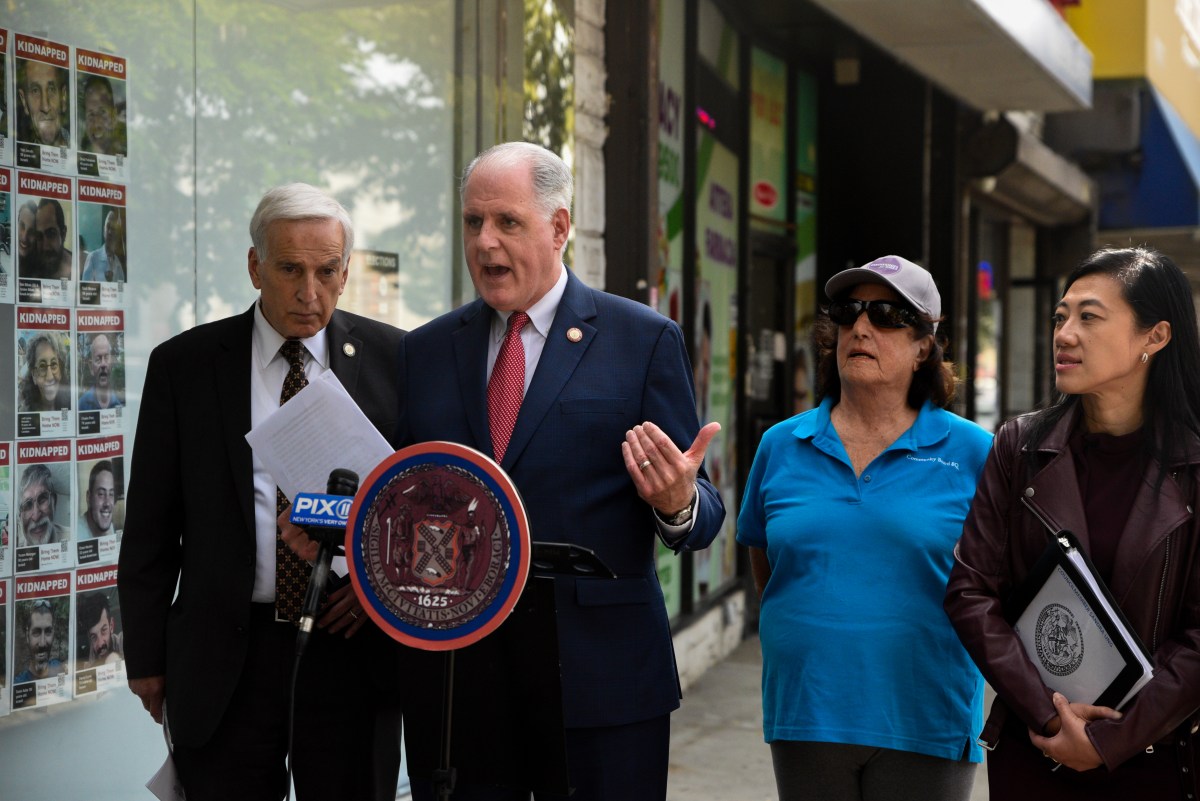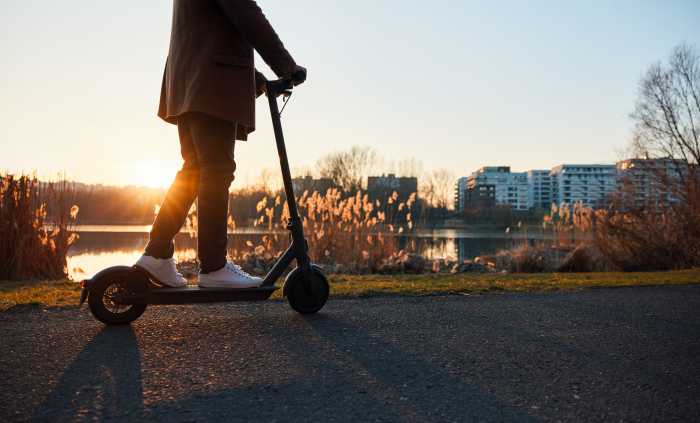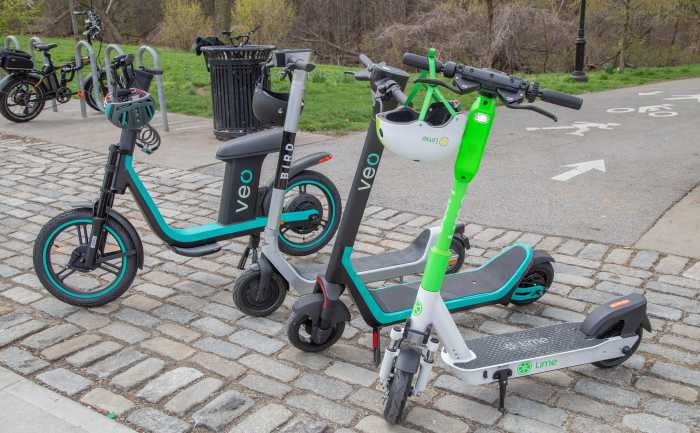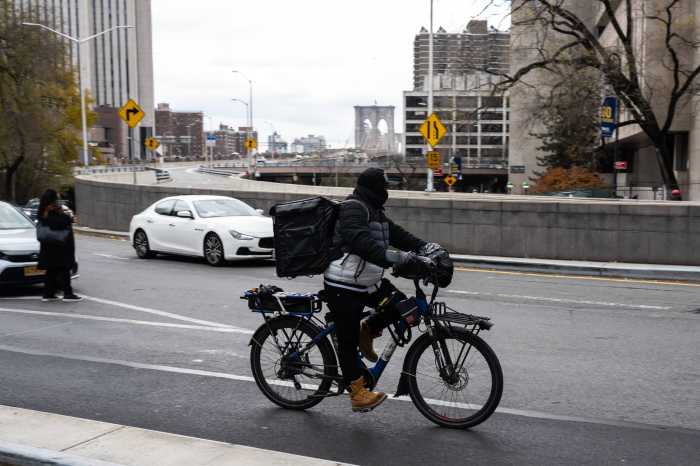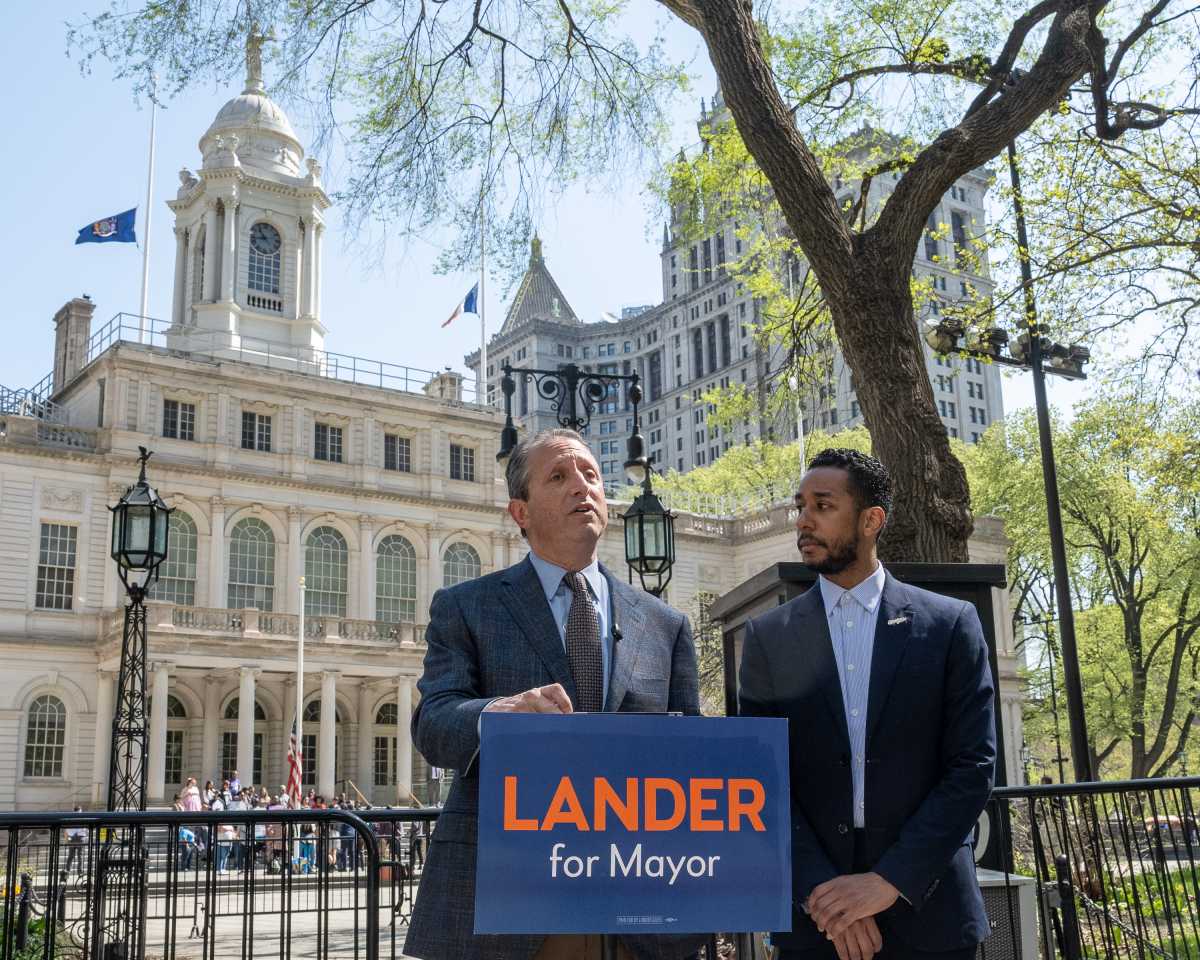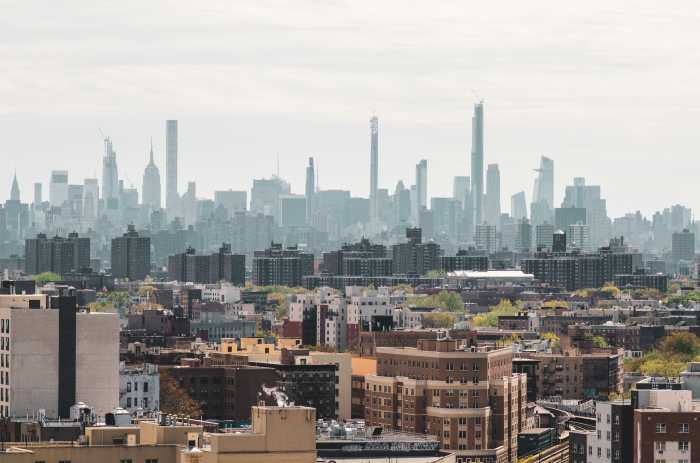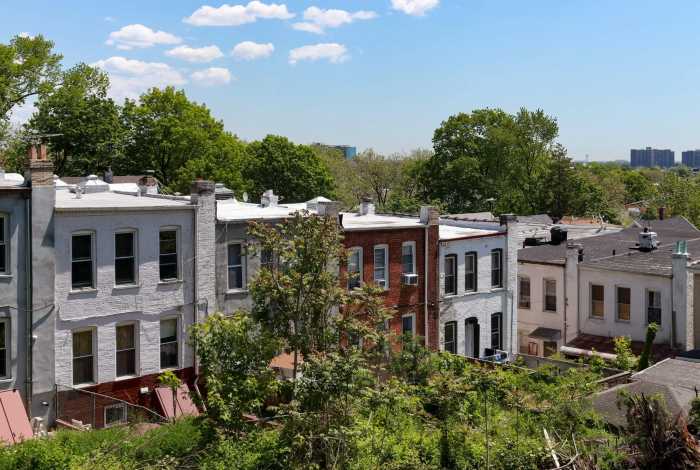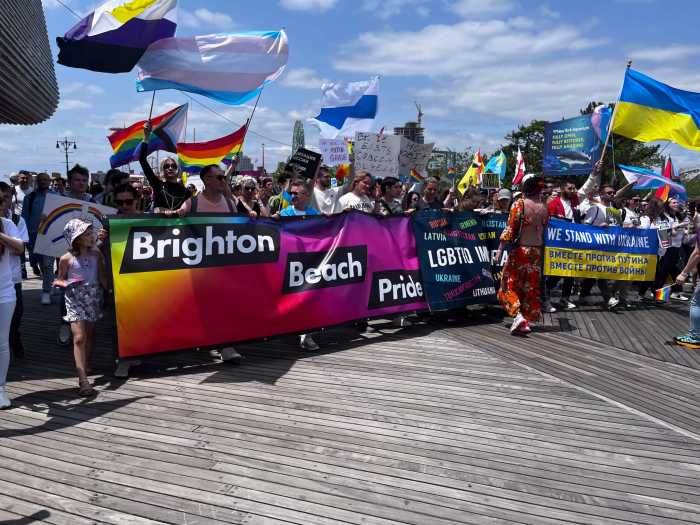City Council Speaker Adrienne Adams is urging City Hall to put an “operational pause” on the ongoing electric scooter share pilot program in Queens, citing an epidemic of discourteous parking practices.
In a letter to Transportation Commissioner Ydanis Rodriguez, Adams—who leads the city’s legislative body while also representing neighborhoods like Jamaica and Springfield Gardens—said she has “profound concerns” with the Department of Transportation’s (DOT) e-scooter pilot, which launched in eastern Queens this summer following a yearslong program in the eastern Bronx.
Specifically, the speaker contends that scooter parking has been haphazard throughout the pilot area, with riders leaving their scooters on sidewalks or roadways and blocking pedestrian traffic flow.
“The lack of orderly operation and enforcement when e-scooters are left on public streets and sidewalks with reckless abandon must be urgently addressed,” Speaker Adams wrote in her Oct. 7 letter to Rodriguez, which was shared with amNewYork Metro. “I am requesting a reset of the department’s E-Scooter Share program in Southeast Queens to ensure the necessary protocols and protections are enacted to prioritize the safety of all residents while supporting local transportation needs.”
The speaker suggests that the “operational pause” should be used to “properly address these many outstanding issues.”
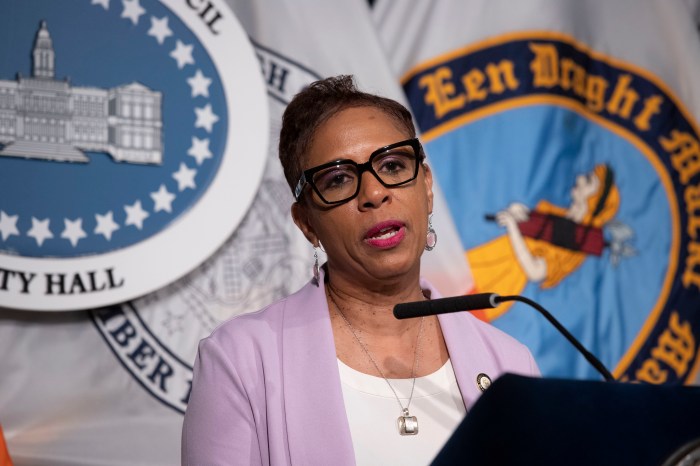
The pilot launched on June 27 in an approximately 20-square-mile area of eastern Queens between Flushing in the north and JFK Airport in the south, following what DOT deemed a successful pilot in the eastern Bronx. Both the eastern Bronx and eastern Queens are areas unserved by Citi Bike and relatively lightly served by mass transit, making them prime spots to test out new forms of micro-mobility.
The same three major scooter companies participating in the Bronx pilot — Lime, Bird, and Veo — also joined the Queens pilot. DOT says that since launch day, 37,000 riders have taken nearly half a million trips in Queens, while 5.7 million trips have been logged in total since the pilot began in the Bronx in 2021. Most rides begin and end in the same neighborhood, the agency says.
Unlike Citi Bikes, the scooters can be parked anywhere when a rider is done with them, except on busy corridors where they must be parked in designated “corrals.” Per program rules, scooters are allowed to be parked in the “street furniture” section of the sidewalk, where decorative aspects like street trees or bus stops are sited, but cannot obstruct the right-of-way for pedestrians on the sidewalk.
But since launch day, some Queens residents and pols have complained about riders disregarding those rules and parking scooters haphazardly, sometimes blocking sidewalks or entrances to people’s homes. Adams said that scooters “are too often chaotically left scattered on public and private spaces throughout Southeast Queens.”
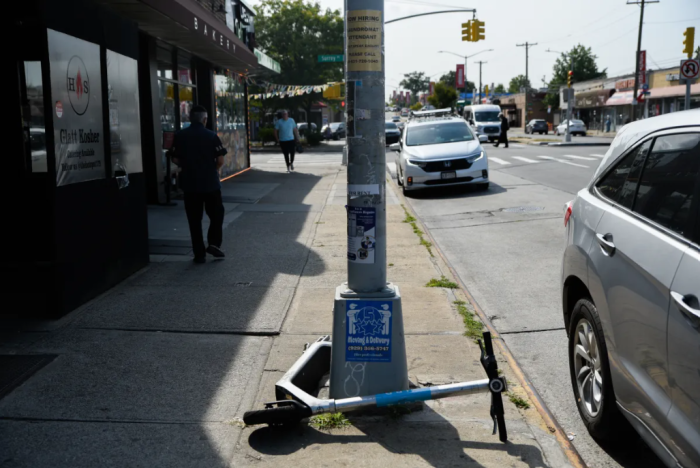
“For months, my constituents have witnessed and shared many accounts of e-scooters being left on sidewalks and streets, as well as in front of homes, driveways, businesses, places of worship, and beyond,” Adams wrote in her letter. “These conditions present potential hazards, especially to older adults and people with disabilities in neighborhoods.”
The speaker also contended that the DOT and the scooter companies had not conducted proper outreach with elected officials and local communities ahead of the program’s launch.
Adams is set to hold a press conference in Jamaica on Friday afternoon to make her concerns and stance public. As one of the city’s most powerful elected officials, her voice adds considerable heft to the opposition campaign against the scooters.
Reached for comment, DOT press secretary Vin Barone said the scooters provide an important transportation option for a transit-starved neighborhood and noted the agency intends to install further scooter corrals in the service area. He also countered the accusation of poor community outreach, noting the agency held 35 briefings with elected officials, community boards, and others.
“Our e-scooter sharing program in Southeast Queens and Flushing builds on the overwhelming success we’ve seen with our operations in the East Bronx,” said Barone. “This expansion into Queens provides critical connections to major transportation and commercial hubs for roughly 600,000 residents — and we are committed to working with companies to make service improvements, including the installation of additional scooter corrals to better organize parking.”
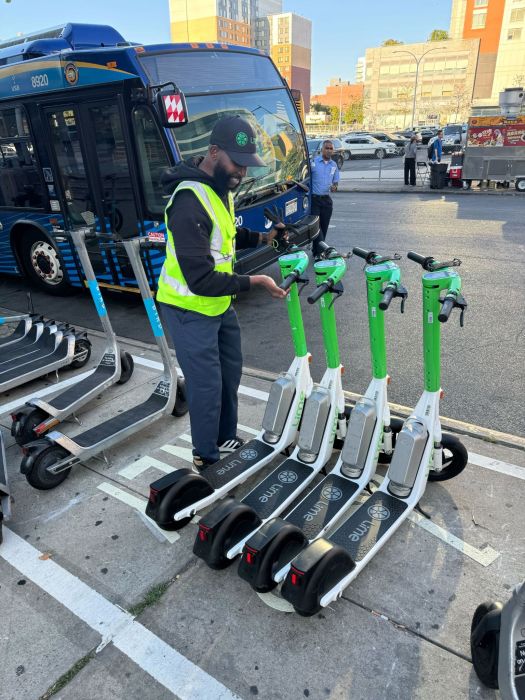
Nicole Yearwood, senior manager of government relations at Lime, the largest of the three companies, contended that pausing the program would “negatively impact tens of thousands of Queens residents.”
“It’s clear from the massive ridership we’ve seen that a pause would negatively impact tens of thousands of Queens residents,” said Yearwood. “Given how much Queens residents are voting with their rides in support of this program, we believe the best path forward is to work together rather than completely take it away from our neighbors who have already come to rely on shared e-scooters as a safe, affordable, and sustainable transportation option in parts of the city that desperately need more ways to get around, not fewer.”
Lime maintains that demand for scooters is high, and they are being used to fill crucial transport niches left empty in the far outer boroughs for those without a car, like trips from home to transit stops. Nonetheless, Yearwood says the company is ready to “fine-tune” the program to respond to community concerns and has hired “Foot Patrol” staff to travel the service area and move crudely parked scooters in real time.
Paige Miller, senior manager for policy and communications at Veo, said the company is willing to “tailor and improve” the program in partnership with city officials, but noted that per its customer surveys, most riders are replacing car trips with scooter rides.
A rep for Bird, meanwhile, disputed Adams’ contention the scooters are unsafe, noting only one incident had been flagged to the company requiring medical attention in Queens. The rep, Adam Davis, said they are soliciting feedback from Queens residents on potential no-riding zones and locations for new corrals.
Davis also noted that the majority of trips begin or end within 50 feet of a transit stop.
“This proximity highlights the important role e-scooters play in Queens and in the Bronx in bridging first- and last-mile gaps, connecting residents to essential transportation and commercial hubs,” said Davis. “We believe that Speaker Adams’ letter is misguided and will hurt the thousands of Queens residents who have quickly taken to using scooters to connect to transit.”
Read More: https://www.amny.com/nyc-transit/



